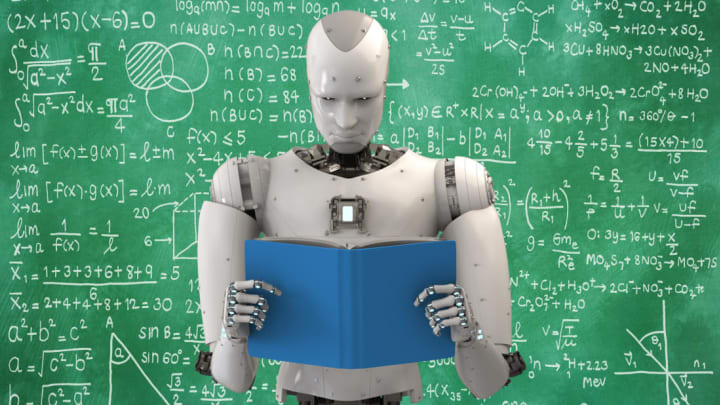Springer Nature Has Published the First AI-Written Textbook
By Emily Petsko

The first AI-written textbook is here, and its tech-heavy subject is exactly what you might expect from a machine-learning algorithm. As Smithsonian reports, the book, published by Springer Nature, is a 247-page guide titled Lithium-Ion Batteries: A Machine-Generated Summary of Current Research.
While it doesn’t exactly make for light reading, the fact that it was written entirely by Beta Writer—an algorithm designed by researchers in Germany—is a game changer. Sure, AI has dabbled with writing before, helping journalists pen articles and even crafting entire chapters for the Game of Thrones and Harry Potter series. (We highly recommend the riveting tale of Harry Potter and the Portrait of What Looked Like a Large Pile of Ash.) But this is the first time AI has authored an entire research book, complete with a table of contents, introductions, and linked references.
The information was pulled from Springer Nature’s online database. While the grammar and syntax are a little clunky, the book manages to get the point across. (Here’s one sample sentence: “Respectively, safety issue is apparently challengeable till now even after the first commercialization of lithium-ion battery.”)
With the exception of an introduction to the book that was written by Henning Schoenenberger, Springer Nature's director of product data and metadata, the finished product was left unedited and unpolished. This was done “to highlight the current status and remaining boundaries of machine-generated content,” according to Schoenenberger. The publisher hopes to experiment with AI-powered textbooks on other subjects in the future.
Artificial intelligence has certainly come a long way in recent years, and algorithms have been trained to carry out a number of oddly specific tasks. They can design beer, figure out the ingredients in your meal, find Waldo in a “Where’s Waldo” picture, and remake the music video of “Total Eclipse of the Heart.” In one of the more meta developments in tech news, Google’s AI even learned to make its own AI in 2017.
[h/t Smithsonian]